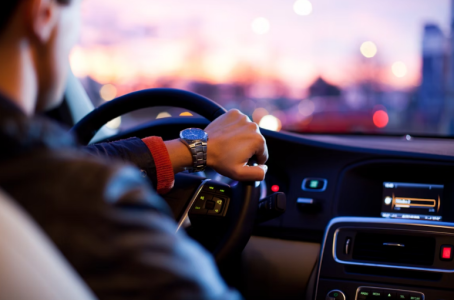$62M Hyundai-Kia settlement means major payouts for drivers—don’t miss the deadline
- Replies 0
Are you a Hyundai or Kia driver? If so, you may be eligible for a cash payment of up to $350, along with reimbursements and other benefits tied to a newly announced $62.1 million settlement.
The case centers on airbag control unit defects that could impact driver safety and vehicle reliability.
While both automakers deny any wrongdoing, they’ve agreed to compensate affected customers who take action before the deadline.
The settlement includes a specific list of eligible vehicles, and both current and former owners or lessees may qualify as long as they held the vehicle on or before April 14, 2025.
Covered models include the 2011–2019 Hyundai Sonata and Sonata Hybrid, 2018–2023 Hyundai Kona and 2022–2023 Kona N, and 2019–2021 Hyundai Veloster.
Also eligible are 2010–2013 Kia Forte and Forte Koup, 2011–2020 Kia Optima and 2011–2016 Optima Hybrid, as well as the 2011–2012 and 2014 Kia Sedona.
If you’re unsure whether your vehicle is on the list, it’s worth verifying directly before assuming you don’t qualify.
Payouts from the settlement are split into several categories, depending on the level of impact and whether the vehicle was recalled.
Drivers of recalled vehicles can claim up to $350, while those with non-recalled but affected vehicles can claim up to $150.
In addition to these residual payments, owners can seek reimbursement for out-of-pocket expenses such as towing, repairs, rental cars, child care, and even lost wages. These amounts will vary depending on documentation provided and the circumstances of the recall.
To submit a valid claim, drivers must fill out the settlement claim form and provide appropriate proof, which could include receipts, invoices, or other supporting records.
Also read: A $4.5 million privacy settlement is now open—here’s how to claim your share with no proof required
If documentation is unavailable, a signed affidavit may be accepted in some cases, though stronger proof is recommended.
The final deadline for claim submission is March 29, 2027, but early filing is encouraged to avoid delays.
There are also two additional legal deadlines: August 25, 2025, for objections or exclusions, and September 29, 2025, for the court’s final approval hearing.
This settlement mirrors recent outcomes from other automakers over similar safety issues, including Toyota’s $78.5 million agreement in 2023 and Mitsubishi’s $8.5 million deal earlier this year.
These cases reflect increasing legal pressure to hold automakers accountable for safety-related defects. Hyundai and Kia maintain that they did nothing wrong but have agreed to settle in order to avoid prolonged litigation.
The funds are structured to help affected drivers recoup losses tied to vehicle reliability and safety concerns. One such case involves Maddie Fitzgerald, a Hyundai driver in Greensburg, Pennsylvania, whose 2014 Sonata stalled unexpectedly on Route 30 and was eventually towed to a repair facility.
“I was driving down the highway, down Route 30, and my car, just out of nowhere, started knocking and just completely stalled on the side of the highway,” she said.
Despite showing that her vehicle matched the year, make, model, and recall criteria listed on Hyundai’s own website, the dealership declined to service the car under warranty.
Also read: Act soon: CVS shoppers may be eligible for a piece of $1M settlement
“They just basically said that it didn’t fall under the recall, even though we had the documents from their site, stating that my car year, make, model, and everything was included in the recall, and all of the symptoms that my car had fallen into the symptoms of the recall,” she added.
After months of delay, a spokesperson from Hyundai corporate finally responded to local media following Fitzgerald’s outreach.
“My understanding is the dealership is waiting for a part to complete the recall. According to the information I received, the part will arrive first of next week,” the representative told CBS affiliate KDKA-TV.
The case remains unresolved as of the most recent update, with the vehicle still in the shop seven months later. For many consumers, this type of prolonged repair and recall confusion is exactly what the settlement intends to address.
Meanwhile, Hyundai is working to reshape its future business model by partnering with Amazon to bring vehicle purchases entirely online starting in 2024.
Customers in the US will be able to browse Hyundai models, compare features, secure financing, and complete purchases through the Amazon platform.
“Hyundai is the first automotive company available for full end-to-end transactions in Amazon’s U.S. store and this is another example of how we continue to push for ways to elevate the customer journey together with our outstanding retail partners,” said Hyundai CEO Jaehoon Chang.
As part of the partnership, Hyundai vehicles will also integrate Alexa voice assistant and utilize Amazon Web Services for backend support.
Read next: You may be owed money—no receipts needed to claim your part of this $10 million settlement

Have you had any experiences with Hyundai or Kia recalls or repairs? Share your thoughts in the comments—your story could help someone else take the next step.
The case centers on airbag control unit defects that could impact driver safety and vehicle reliability.
While both automakers deny any wrongdoing, they’ve agreed to compensate affected customers who take action before the deadline.
The settlement includes a specific list of eligible vehicles, and both current and former owners or lessees may qualify as long as they held the vehicle on or before April 14, 2025.
Covered models include the 2011–2019 Hyundai Sonata and Sonata Hybrid, 2018–2023 Hyundai Kona and 2022–2023 Kona N, and 2019–2021 Hyundai Veloster.
Also eligible are 2010–2013 Kia Forte and Forte Koup, 2011–2020 Kia Optima and 2011–2016 Optima Hybrid, as well as the 2011–2012 and 2014 Kia Sedona.
If you’re unsure whether your vehicle is on the list, it’s worth verifying directly before assuming you don’t qualify.
Payouts from the settlement are split into several categories, depending on the level of impact and whether the vehicle was recalled.
Drivers of recalled vehicles can claim up to $350, while those with non-recalled but affected vehicles can claim up to $150.
In addition to these residual payments, owners can seek reimbursement for out-of-pocket expenses such as towing, repairs, rental cars, child care, and even lost wages. These amounts will vary depending on documentation provided and the circumstances of the recall.
To submit a valid claim, drivers must fill out the settlement claim form and provide appropriate proof, which could include receipts, invoices, or other supporting records.
Also read: A $4.5 million privacy settlement is now open—here’s how to claim your share with no proof required
If documentation is unavailable, a signed affidavit may be accepted in some cases, though stronger proof is recommended.
The final deadline for claim submission is March 29, 2027, but early filing is encouraged to avoid delays.
There are also two additional legal deadlines: August 25, 2025, for objections or exclusions, and September 29, 2025, for the court’s final approval hearing.
This settlement mirrors recent outcomes from other automakers over similar safety issues, including Toyota’s $78.5 million agreement in 2023 and Mitsubishi’s $8.5 million deal earlier this year.
These cases reflect increasing legal pressure to hold automakers accountable for safety-related defects. Hyundai and Kia maintain that they did nothing wrong but have agreed to settle in order to avoid prolonged litigation.
The funds are structured to help affected drivers recoup losses tied to vehicle reliability and safety concerns. One such case involves Maddie Fitzgerald, a Hyundai driver in Greensburg, Pennsylvania, whose 2014 Sonata stalled unexpectedly on Route 30 and was eventually towed to a repair facility.
“I was driving down the highway, down Route 30, and my car, just out of nowhere, started knocking and just completely stalled on the side of the highway,” she said.
Despite showing that her vehicle matched the year, make, model, and recall criteria listed on Hyundai’s own website, the dealership declined to service the car under warranty.
Also read: Act soon: CVS shoppers may be eligible for a piece of $1M settlement
“They just basically said that it didn’t fall under the recall, even though we had the documents from their site, stating that my car year, make, model, and everything was included in the recall, and all of the symptoms that my car had fallen into the symptoms of the recall,” she added.
After months of delay, a spokesperson from Hyundai corporate finally responded to local media following Fitzgerald’s outreach.
“My understanding is the dealership is waiting for a part to complete the recall. According to the information I received, the part will arrive first of next week,” the representative told CBS affiliate KDKA-TV.
The case remains unresolved as of the most recent update, with the vehicle still in the shop seven months later. For many consumers, this type of prolonged repair and recall confusion is exactly what the settlement intends to address.
Meanwhile, Hyundai is working to reshape its future business model by partnering with Amazon to bring vehicle purchases entirely online starting in 2024.
Customers in the US will be able to browse Hyundai models, compare features, secure financing, and complete purchases through the Amazon platform.
“Hyundai is the first automotive company available for full end-to-end transactions in Amazon’s U.S. store and this is another example of how we continue to push for ways to elevate the customer journey together with our outstanding retail partners,” said Hyundai CEO Jaehoon Chang.
As part of the partnership, Hyundai vehicles will also integrate Alexa voice assistant and utilize Amazon Web Services for backend support.
Read next: You may be owed money—no receipts needed to claim your part of this $10 million settlement
Key Takeaways
- Eligible models include Hyundai Sonata (2011–2019), Kona (2018–2023), Kona N (2022–2023), Veloster (2019–2021), Kia Forte (2010–2013), Forte Koup (2010–2013), Optima (2011–2020), Optima Hybrid (2011–2016), and Sedona (2011–2012, 2014).
- Cash payments of up to $350 are available for recalled vehicles, and up to $150 for non-recalled but affected models.
- Additional reimbursements cover towing, repairs, rentals, lost wages, and more, provided proper documentation is submitted.
- Claim submission deadline is March 29, 2027. Objection/exclusion deadline is August 25, 2025. Final approval hearing is scheduled for September 29, 2025.







